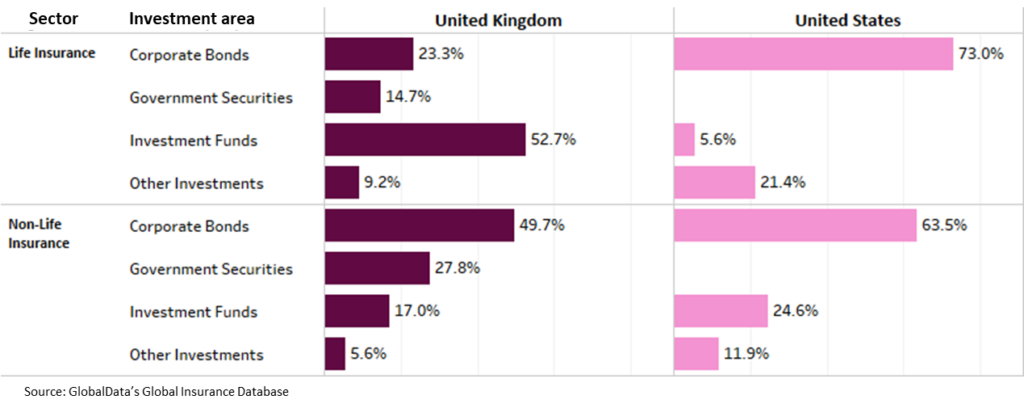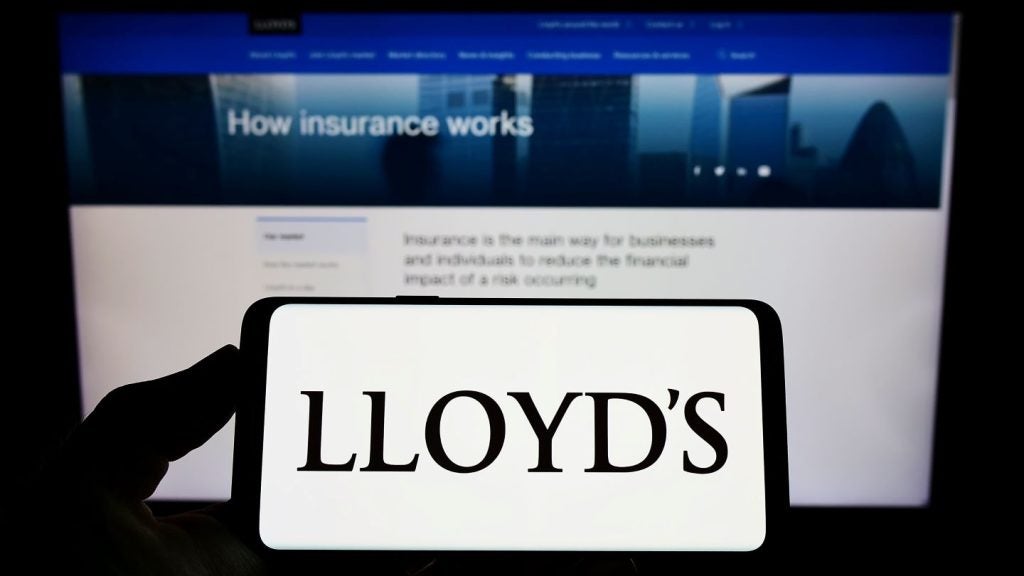The spread of COVID-19 has rocked financial markets, with the global economy forecasted to slip into recession as governments enforce lockdown measures that have greatly limited the ability of businesses to function. Inevitably, the investments made by insurers are now vulnerable to the economic impacts COVID-19 is causing.
GlobalData research indicates the extent to which the life and non-life insurance sectors in the UK and the US are exposed given the different composition of their investments. The below graphic illustrates the composition of the combined investments made by insurers in these sectors in 2018.

Investments held in corporate bonds are particularly vulnerable to the impacts of an economic recession, with some businesses likely to default on payments. Insurers operating in the US are heavily invested in corporate bonds compared to their UK counterparts, and US life insurers in particular are more vulnerable to the downturn given almost three quarters of their investments are in this area.
The combination of volatility in financial markets, the increasing cost of claims, and a looming economic recession has increased pressure on the balance sheet of insurers. This in turn has led to concerns surrounding some providers. Evidence of this can be seen in moves made by ratings agency Fitch, which recently downgraded the credit ratings of life insurers operating across the US, the UK, and Europe. Beyond this, insurers operating across both life and non-life markets have cancelled dividend payments in an effort to reserve cash and provide some insulation to the unforeseen claims that will arise as a result of COVID-19.
The spread of COVID-19 has highlighted the vulnerability of the insurance industry to external forces as well as limitations in its ability to offer cover. Many businesses will feel aggrieved that their business interruption insurance does not provide protection against pandemics, leaving them exposed to cover the cost of COVID-19 losses themselves.
There will undoubtedly be calls for this to change, but the industry will not be able to offer the necessary cover as it would not be financially viable. Should a global pandemic occur again in the future, the associated cost of claims would far exceed any provider’s means, and their exposure to the volatility of financial markets and subsequent economic recession would put unprecedented pressure on balance sheets.







